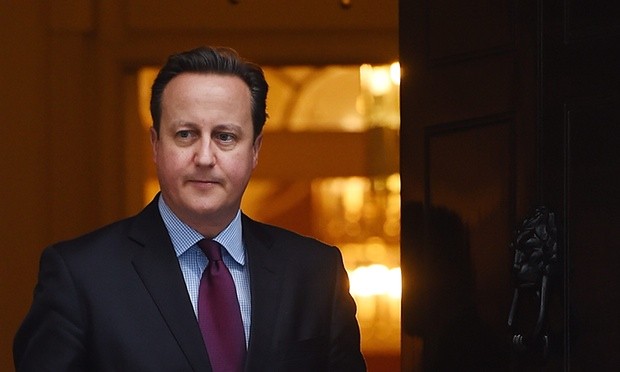I’ll stay as PM even if I lose EU referendum, says Cameron
The Guardian
Prime minister says his authority rests on holding the vote on British membership, not winning it

David Cameron has moved to sever any link between the EU referendum and his own political future by saying that he will remain as prime minister even if he loses the vote on British membership.
As he confirmed that he hoped to hold the referendum in the summer, the prime minister said his authority rested on holding the vote, not the result.
But in an interview on The Andrew Marr Show on BBC1, the prime minister gave his clearest statement yet that he wanted Britain to remain in the EU. Asked whether he was prepared for the possibility of a UK exit, Cameron said: “I don’t think that is the right answer for the reasons I have given. But were that to be the answer we would have to do everything to make that work.”
The prime minister was keen in his new year interview with Marr to repeat the tactic he deployed in the Scottish referendum. This was to kill of any attempt to link his future to the referendum result by saying he would remain in office even if he lost.
In the final weeks of the Scottish referendum, when polls suggested that the people of Scotland might vote for independence, the prime minister did privately draw up a resignation letter. It was widely felt in Downing Street that his position would have been untenable had he lost the referendum. But he did not want to give any public hint of his thinking.
The prime minister expressed confidence in his Marr interview that he was making progress in his negotiations with Britain’s EU partners. He said: “It is hard work. But the areas that I have identified are the things that drive us up the wall about Europe that we need to deal with. Let’s make sure we are not part of an ever closer union. I think we are on the way to getting that fixed. The idea thatEurope must add to our competitiveness, not take away from our competitiveness, making sure this isn’t just a single currency club but it is flexible enough for countries like Britain with our own currency. And then dealing with this issue of the abuse of free movement and the pressure of migration from the EU on Britain by amending welfare rules.”
Cameron added that he was confident of a deal at the next EU summit in February. This would allow a referendum to be held by June. But it is widely expected the legal complexities of the negotiations mean that a deal may have to wait until the following EU summit in March, which would delay a referendum until September. The prime minister said in his interview that he is prepared to wait longer to secure the right deal.
The prime minister also confirmed that the government was following the precedent of the Scottish referendum by declining to make contingency plans for a rejection of the status quo. The Guardian understands that Sajid Javid, the business secretary, has been urging Downing Street to make such plans to avoid a “blight” on business during the two years of negotiations that would be held to agree an exit settlement. No 10 has rejected this idea.
How to submit an Op-Ed: Libyan Express accepts opinion articles on a wide range of topics. Submissions may be sent to oped@libyanexpress.com. Please include ‘Op-Ed’ in the subject line.
- HoR-Backed Government moves to end fuel subsidy - December 26, 2024
- Libya and Algeria bolster customs cooperation - December 24, 2024
- Reports claim S-400, S-300 missiles moved to Libya - December 24, 2024


